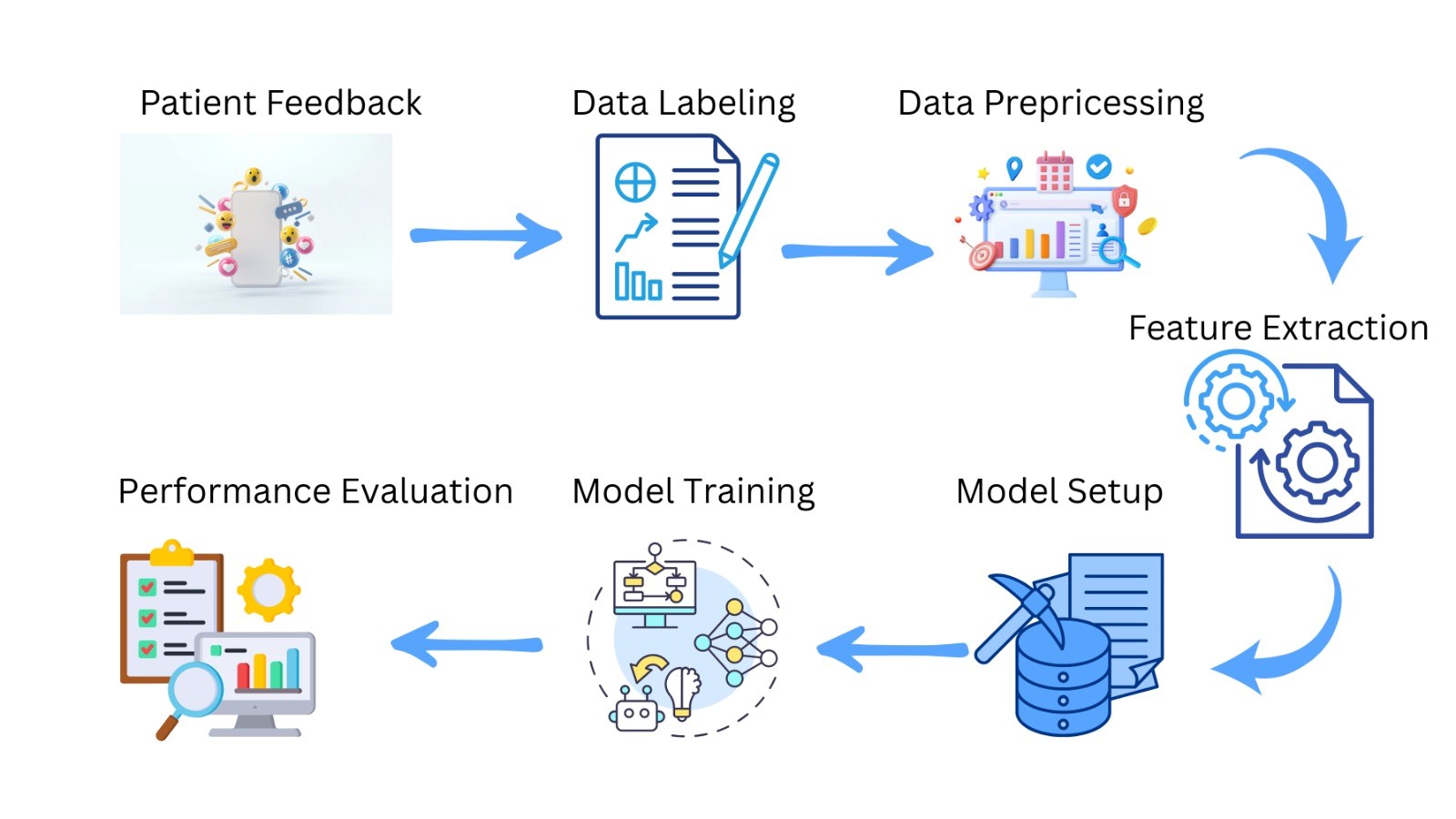ENHANCING PATIENT SAFETY IN HEALTHCARE THROUGH PUBLIC OPINIONS USING DEEP LEARNING
DOI:
https://doi.org/10.71146/kjmr566Keywords:
BERT, Deep Learning, Machine Learning, Patient SafetyAbstract
This research seeks to analyze the use of sentiment analysis (SA) to enhance patient safety and healthcare service delivery by evaluating patients’ perceptions of social media and healthcare websites. It contrasts the results of the experiments with support vector machines (SVM), logistic regression (LR), naive bayes (NB), and a fine-tuned BERT model for SA. The labeled patient review dataset used in this study was collected from social media websites such as Facebook, Twitter, and Marham.pk. Text cleaning, such as text normalization, TF-IDF vectorization, and BERT tokenization, were applied to the dataset to make it fit for analysis. The findings show that the fine-tuned BERT model provided a better prediction result than the previous models with 97% accuracy owing to the enhanced contextual meaning representation and sentiment sensitivity. Conversely, classical models displayed relatively good performance with mean accuracy scores but poor ability to deal with intricate language. The study identifies the possibility of combining new SA methods with service quality models to support fact-based decision-making in healthcare. However, the model has some limitations that as high computational complexity and low interpretability compared with the previous ones. Future work is planned to expand the study of domain-specific transformers, increase computational efficiency, and introduce the concept of explainability into real-life applications of this type of model.
Downloads

Downloads
Published
Issue
Section
License
Copyright (c) 2025 Naeem Ullah Shah, Dr. Khairullah Khan, Dr. Muhammad Tahir Farooq, Shoukat Ullah, Dr. Amanullah, Itlal Ahmed, Raja Iqbal (Author)

This work is licensed under a Creative Commons Attribution 4.0 International License.






